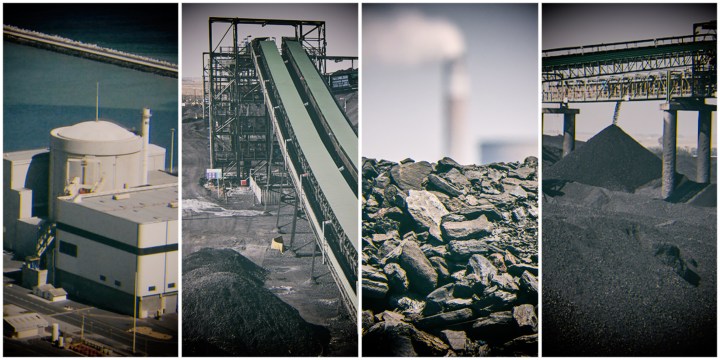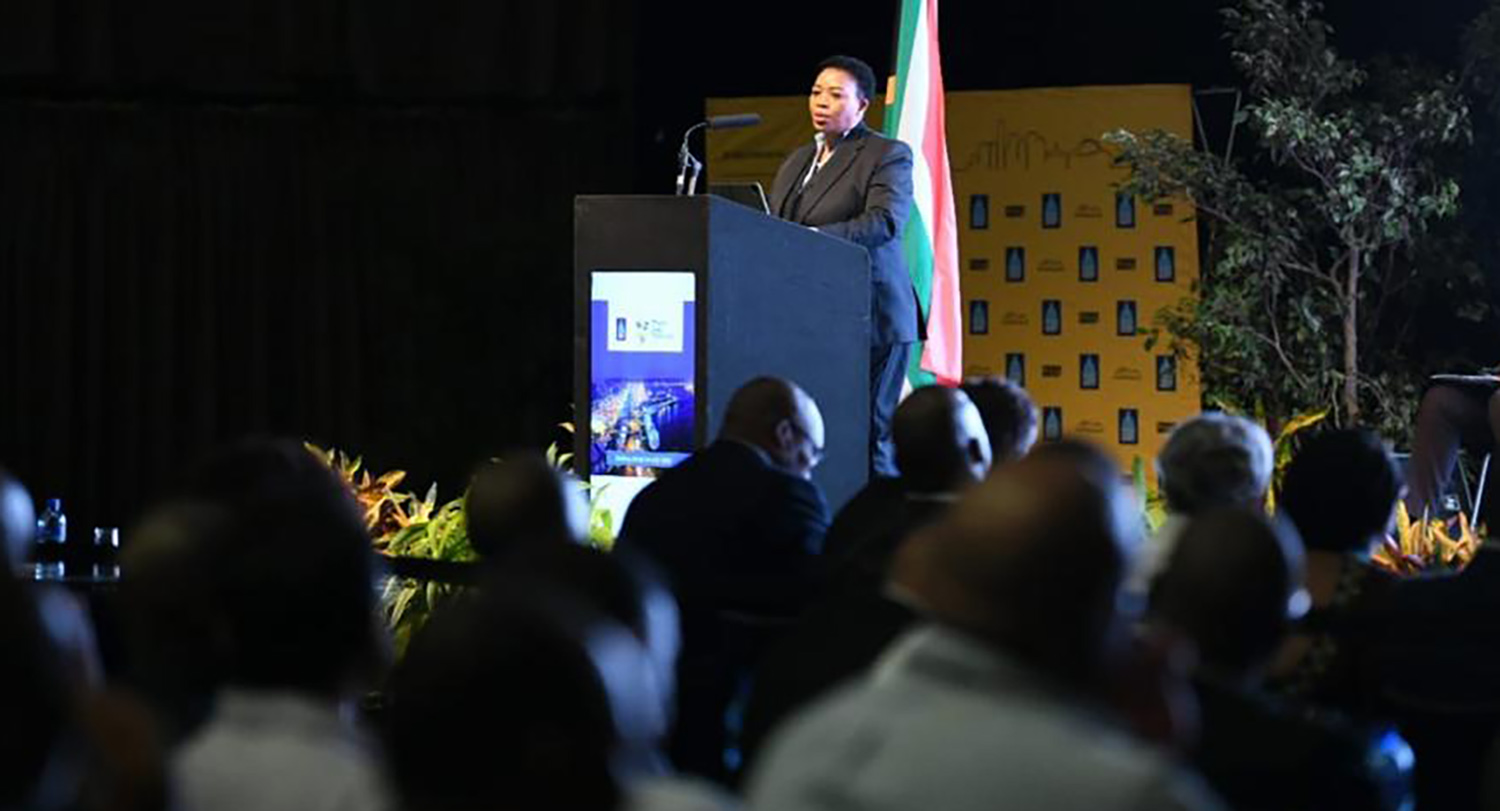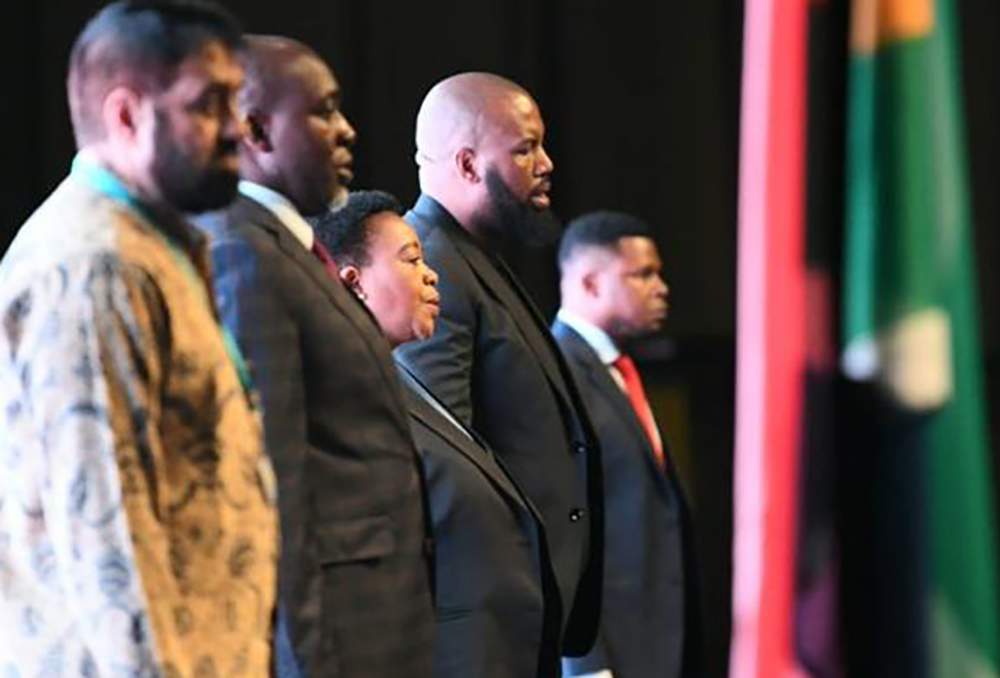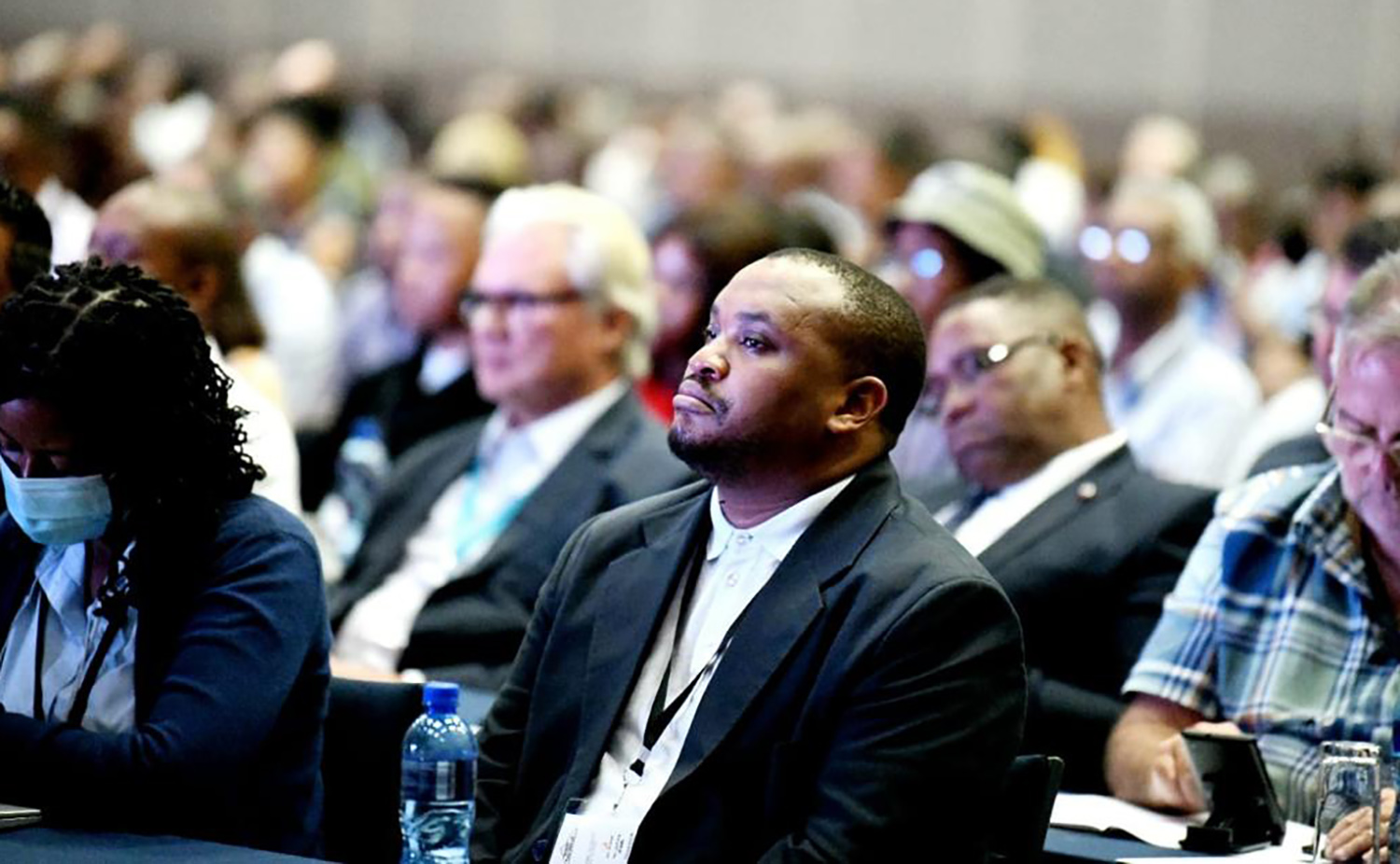BURNING ISSUE
eThekwini Energy Summit turns into a coal lovefest

If there was one message communicated loudly and clearly at the opening of the eThekwini Energy Summit on Wednesday, it was that coal remains central to any energy security solution in South Africa.
The tone of the conference was set within the first 10 minutes when the master of ceremonies, entrepreneur Moses Tembe, representing the KwaZulu-Natal Growth Coalition, noted of the panel: “We have no speaker representing the environmentalists.”
The KZN Growth Coalition is a partnership between the provincial government and the private business sector.
Tembe’s opening remarks at the eThekwini Energy Summit on Wednesday were followed by a series of enthusiastic speeches spearheaded by Siboniso Duma, the provincial MEC for economic development, tourism and environmental affairs, and chairman of the ANC in KwaZulu-Natal.

KwaZulu Natal Premier Nomusa Dube Ncube addresses the eThekwini Energy Summit. (Photo: Supplied)
The mood at the hall inside the Durban International Convention Centre where the two-day event is being hosted, was similar to the opening of a political congress, as the crowd — replete with “business forums” and other RET-aligned groups — cheered at the multiple mentions of coal and more quietly jeered when speakers criticised developed economies and “renewable fundamentalists”.
Also among the delegates were representatives from the oil, gas and nuclear industries, including Russia’s Rosatom.
The summit takes place amid increased rolling blackouts and the recently gazetted disaster management regulations for the National State of Disaster announced by President Cyril Ramaphosa during his State of the Nation Address in February.
Besides deterring investment, shaving billions off the economy and adding to an increase in violent protests, the rolling blackouts threaten the political future of the governing ANC. The declaration of a National State of Disaster to deal with “severe electricity supply constraints” empowers Ramaphosa’s Cabinet to avoid parliamentary oversight and override regulatory protections such as environmental authorisations.
At least two civil society organisations — Solidarity and the Organisation Undoing Tax Abuse — as well as the official political opposition, the Democratic Alliance, are set to challenge the proclamation of the State of Disaster in court.
‘Coal is what we have as a country’

KwaZulu-Natal economic development and environmental affairs MEC Siboniso Duma, (second right) KZN Premier Nomusa Dube (third right) and eThekwini Mayor Mxolisi Kaunda (second left) at the eThekwini Energy Summit. (Photo: Supplied)
In his address to delegates, Duma was loudly applauded when he said: “Those who are promoting the usage of the mineral deposit called coal in South Africa today are being labelled as coal fundamentalists. I think we must demystify that myth because coal is what we have as a country, and we do not even characterise those who are promoting renewable as fundamentalist; it is an incorrect picture that must be outlined.”
His views align with those of the minerals and energy minister, Gwede Mantashe. Furthermore, it is a poorly kept secret that the coal lobby is a firm financial supporter of the ANC, which itself is in a financial crisis.
Duma continued: “The research shows that for the next 200 years we will have this coal. Let us make sure that we utilise the strength if there is a need for modern technology that is going to purify our anthracite, then let us use it.”
He expressed disapproval for the global zero carbon movement, hinting that those pushing the agenda were bullying countries like South Africa and that their collective economic influence meant the country and province had been forced into compliance.
“Unfortunately, we live in a world like that. So we must also follow that process. The KwaZulu-Natal Cabinet adopted a just transition framework, which outlines a shared vision for shifting to an equitable zero carbon economy,” he said.
But he said that if the country and province abandoned coal, livelihoods from Mpumalanga to KwaZulu-Natal would be destroyed.

Attendees at the eThekwini Energy Summit. (Photo: Supplied)
He said it was unfair on South Africa, which contributes about 2% of greenhouse energy gases, to be held accountable for the effects of greenhouse gases on climate change.
“Coal is a prime commodity which we should guard and protect if we want to remain competitive in the world,” said Duma.
The coal mining industry in KwaZulu-Natal is located primarily in the northern areas of the province, and in Zululand. The main inland mines are located near Dundee, Newcastle, Utrecht and Hlobane in northern KZN, while the Port of Richards Bay is a major coal export hub, with the capacity to move 91 million tonnes per year.
Duma’s views were echoed by KwaZulu-Natal Premier Nomusa Dube-Ncube, who called coal “our own endowment”. She also unpacked the harsh reality of sustained rolling blackouts on the provincial economy.
“The crisis that we are facing is not just the crisis of economy, crisis on energy shortages and the crisis on growth in the investment, but also it is talking to the amount of money that we are going to be able to muster as municipalities for us to be able to roll out the infrastructure that is needed for development. The crisis will cripple the fiscus of municipalities who make up a majority of their revenue from selling electricity to consumers,” said Dube-Ncube.
She said there would be an additional crisis when customers moved away from purchasing their electricity from municipalities, as this would add to the deterioration of municipal budgets. This would have to be mitigated via the implementation of new bylaws, policies and regulations.
‘You need to industrialise’
The chairman of the African Energy Chamber, Cameroon’s NY Ayuk, delivered a speech that elicited powerful applause. Ayuk, a lawyer by profession, said South Africa needed to use available energy resources.
“This is not the time to leave it in the ground. Wealthy nations, they need to decarbonise, but you need to industrialise. Nobody loves the environment more than we do.”
Ayuk encouraged delegates not to “back down” when told they were not lovers of the environment because they wanted to use coal or natural gas for energy.
“Folks, they are wrong. And as you debate your issues in this conference, you must defend your resources.”
Prasheen Maharaj, president of the Durban Chamber of Commerce and Industry, was less worried about the source of the energy and called on the eThekwini Municipality to fix its distribution networks.
He said there were “four fundamental problems” that need to be solved, and that while the summit was talking about generating electricity, the city was a distributor.
“You can have all the energy in the world but if the municipality cannot distribute it, this doesn’t take away the… problem.”
Maharaj said those “four fundamental problems” were:
- Distribution network equipment that was anywhere between 40 and 50 years old;
- A lack of scheduled preventative maintenance;
- A lack of urgency in the replacement of key equipment damaged by the April 2022 floods; and
- Crime.
“Many of the large substations are left unattended, or inadequately protected, allowing for the theft of cable, and equipment. These are provincial key points, they need to be protected,” he said.
He said the chamber and its members were ready to enter into agreements with the government for energy security.
“With the current critical stage of our infrastructure, we need to gather resources and expertise and work as a patriotic collective in a collaborative and cooperative manner to save our city from complete collapse. I have previously said that we need to reduce the trust deficit between the public and private sectors.” DM


















Comments - Please login in order to comment.